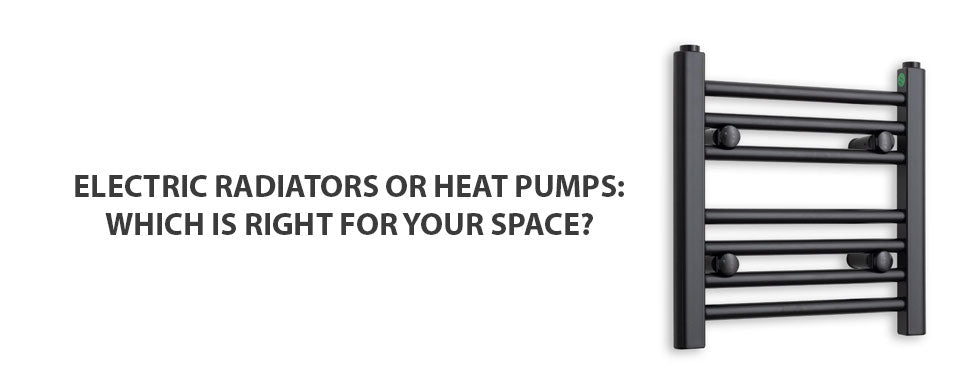Last updated: January 2026

In the evolving landscape of home heating solutions, two contenders have consistently been in the spotlight for their efficiency, cost-effectiveness, and suitability for various settings: electric radiators and heat pumps. Both bring their own unique advantages to the table, ensuring optimal heating for homes and commercial spaces alike. Here, we delve deep into the specifics of each system, weighing their pros and cons to help you make an informed decision for your space.
Understanding Electric Radiators
Electric radiators are contemporary versions of the traditional radiators that most of us might have grown up with. Instead of being powered by a boiler, these radiators use electricity to produce heat.
Benefits of Electric Radiators:
-
Efficiency: Electric radiators convert almost 100% of the electricity they consume into heat, ensuring minimal energy wastage.
-
Installation: They are easy to install, requiring just an electrical outlet. No need for pipework or extensive setup.
-
Control: Modern electric radiators come with thermostatic controls, allowing users to set the desired temperature for each room.
-
Maintenance: Minimal maintenance is needed. No annual servicing or inspections are necessary.
Drawbacks of Electric Radiators:
-
Running Costs: While electric radiators are efficient, the cost of electricity can be higher than other energy sources.
-
Heat Distribution: Heat may not be as evenly distributed throughout the room compared to some other heating solutions.
Diving into Heat Pumps
Heat pumps, specifically air-source heat pumps, work by extracting heat from the outside air and amplifying it to heat the home. They can function even when it's cold outside, making them an appealing choice for many climates.
Advantages of Heat Pumps:
-
Energy Efficiency: Heat pumps can produce up to three times more heat energy than the electrical energy they consume.
-
Versatility: Many heat pumps also have a cooling function, making them useful for both winter heating and summer cooling.
-
Safety: No risk of carbon monoxide leakage or combustion-related incidents.
-
Environmentally Friendly: Using ambient heat means less fossil fuel consumption and lower carbon emissions.
Limitations of Heat Pumps:
-
Initial Costs: The upfront cost of purchasing and installing a heat pump can be higher than other heating options.
-
Maintenance: Requires annual servicing to ensure efficient operation.
Making The Right Choice: Factors to Consider
When deciding between electric radiators and heat pumps, a few key factors can influence your decision:
-
Budget: Consider both initial setup costs and long-term running costs. While heat pumps might have a higher upfront cost, they could lead to savings in the long run due to their energy efficiency.
-
Space: Smaller spaces might benefit from the simplicity of an electric radiator, while larger homes or spaces might find the comprehensive heating and cooling capabilities of a heat pump more beneficial.
-
Climate: In extremely cold climates, the efficiency of heat pumps can diminish, making electric radiators a more consistent option.
-
Environmental Concerns: If reducing your carbon footprint is a priority, the eco-friendly nature of heat pumps might appeal to you.
Conclusion
In the debate between electric radiators and heat pumps, there isn't a one-size-fits-all answer. Both systems have their merits and are best suited for different scenarios. Your choice should be influenced by your specific needs, budget, and environmental preferences. By understanding the features, benefits, and limitations of each system, you can make a well-informed decision that brings comfort and efficiency to your space.

Ibrahim Kalay
Founder, Elegant Radiators
Heating specialist since 2014. Ibrahim founded Elegant Radiators from our Coventry warehouse (CV7 9NH), supplying thousands of UK homes with quality designer radiators and towel rails. His hands-on experience with BTU calculations, installation requirements, and product specifications informs every article on this blog.



Comments